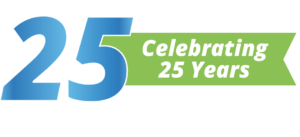Did you know that English has approximately 1.5 billion to 1.8 billion speakers worldwide and is one of the six official languages of the United Nations? It is the most commonly used language in business; however, the estimated number of native English speakers is only about 500 million people. That is a HUGE variance… So have you had to work with an interpreter or translator, and if so do you know what the difference is between the two?
An interpreter is one that takes the spoken word and interprets it into another language verbally; whereas a translator takes the written word and translates it into the written word of another language. Surprisingly not all translators interpret and not all interpreters translate. Both interpretation and translation are invaluable to our society locally and globally and continue to grow at an astonishing rate, however, as the industry continues to grow, so do some of the challenges. In this article, we will focus strictly on written translations and will cover what the most important aspects of a good translation are.
There’s a lot of programs, web sites, etc. that offer translation from one language into another, so how accurate are those programs and specifically how accurate is Google Translate? The simple answer is that Google Translate is pretty good for literal one-word translations, but is a long way from being anything close to perfect. In fact, if you try to translate multiple sentences or a passage, it is often full of mistakes, missing punctuation, and sentences that just don’t make sense.
A lot clearly depends upon the subject matter and language being used but keep in mind that there are many nuances in languages that a statistical or holistic approach of a computer program can’t “understand”. If you are looking for a quick rough translation, Google Translate might work for you but it should not be used to replace a professional translator. Here are a couple things that human translators can offer that computer translation cannot.
Qualification
It is safe to say that a qualified translator will have the following traits: Education, credentials, and experience.
Certification
It is important to ensure that your translation meets the needs and requirements of the judicial system. State, Federal and international courts all have different requirements. So, it is critical to ensure that you are in compliance prior to submitting that translated document to the court. When in doubt, ask your language service provider.
Comprehension
Human translators understand the subtle nuances, colloquialisms, and idioms that machines simply can’t. Have a patent, trade-mark or international correspondence or even marketing material, there is no real comparison between the two.
Quality Assurance
All translations, regardless of the size, should be proofed and edited by at least two, and sometimes three, individuals. A good translator or translation company will always proof and edit all work. This is to ensure that the highest quality is provided and this step allows for additional creative development. Machine/software translation simply does not offer this same level of service.
The benefits of machine/software translation do exist, however, they are limited.
Instant results – Machines can produce translations at astonishing fast rates.
Little/No Cost – Google Translate and several other programs or software are free of charge. Other programs charge modest fees, with nearly the same results as free ware.
Language Accessibility – Google Translate, as well as other software programs, have the ability to translate in over 60 languages.
These are just a few of the differences between software translation and professional translators. Machines may work for one or two words, but nothing compares to what you would obtain from a professional!
- Atlas Language Services, Inc., a Chicago based Language Service Provider specializing in language interpretation (spoken), translation (written), globalization, localization and conference interpretation and simultaneous conference equipment rentals and sales.
- With over 20 years of industry experience in the legal, medical, corporate, pharmaceutical, engineering and conference interpretation fields as well as expertise in written translations for advertising, marketing, promotions, sales, human resources, publications and technical research material, you can be assured that Atlas can handle all your language needs, not just domestically but worldwide.
- Atlas Language Services, Inc. is an A+ rated business by the Better Business Bureau as well as a corporate member of: American Translators Association; Association of Language Companies; Crystal Lake Chamber of Commerce; Chicagoland Chamber of Commerce; Midwest Association of Translators & Interpreters; Meeting Planners International; and the Illinois Paralegal Association.
- Atlas Language Services, Inc. can be reached on our contact us page.
- Kevin McQuire is the President/CEO
FAQs
What is the difference between an interpreter and a translator?
An interpreter verbally translates the spoken word into another language, while a translator works with written text, converting it from one language to another. Not all translators interpret, and not all interpreters translate.
How accurate is Google Translate?
Google Translate is useful for quick, one-word translations but struggles with multiple sentences and complex passages. It often contains mistakes and lacks the nuance and accuracy that human translators can provide.
Why should I use a professional translator instead of machine translation?
Professional translators offer key advantages such as understanding cultural nuances, colloquialisms, and idioms, as well as providing thorough quality assurance through proofreading and editing, which machine translations cannot match.
What qualifications should a professional translator have?
A qualified translator should have formal education, relevant certifications, and extensive experience to ensure the accuracy and quality of their translations, especially for specialized fields like legal or medical translations.

